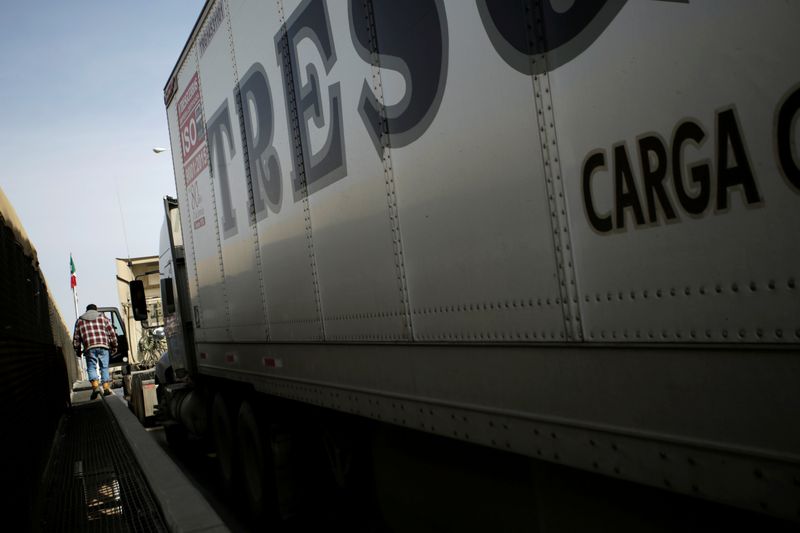By Anthony Esposito and David Lawder
MEXICO CITY/WASHINGTON (Reuters) - Mexican business leaders on Wednesday began poring over texts of a new stricter trade deal with the United States and Canada, looking for details of how more intrusive enforcement of labour rules in Mexico would affect their operations.
Moises Kalach, a leader of the CCE business lobby, which represented Mexico's private sector in the negotiation of the U.S.-Mexico-Canada Agreement (USMCA) that will replace the 1994 North American Free Trade Agreement (NAFTA), said that businesses felt sidelined.
"We would have liked to have been (in the negotiations) more ... to give our opinion more. This is the reality, we participated but not as much as we would have liked," said Kalach.
USMCA was signed more than a year ago to replace NAFTA, but Democrats controlling the U.S. House of Representatives insisted on major changes to labour and environmental enforcement before bringing it to a vote.
In an unusual display of bipartisan and cross-border cooperation in the Trump era of global trade conflicts, top officials from Canada, Mexico and the United States on Tuesday signed a fresh overhaul of the quarter-century-old trade pact.
Some Mexican business groups bemoaned a lack of clarity and conflicting information on how the rules would actually be enforced under the deal, the first text of which only became public on Wednesday. An official at the truck and bus manufacturing association said he was studying the accord. CCE said it was still waiting for the documents to be translated into Spanish by lawyers.
Before seeing the fine print, Gustavo Hoyos, president of employers federation Coparmex and a vocal critic of President Andres Manuel Lopez Obrador, called the government "a bad negotiator."
Others were more positive.
"There were many things we would have liked to have seen but in general we can say this deal is very beneficial for Mexico, it will bring investment to the country and I have no doubt will make the North American region more competitive," said Antonio del Valle, head of the Mexican Business Council.
Mexico's Economy Minister Graciela Marquez predicted the deal would boost Mexico's flagging growth once it becomes law. U.S. and Canadian lawmakers signalled the deal may not reach a vote until early next year.
Mexico's peso was up more than 0.5% on Wednesday at 19.47 pesos to the dollar
ENFORCEMENT MECHANISM
The deal included new bilateral mechanisms under which the United States and Canada can create panels of labour experts to investigate union complaints at Mexican factories.
Mexico's Foreign Minister Marcelo Ebrard said that under changes to the United States-Mexico-Canada Agreement (USMCA), Mexico will be able to bring labour complaints against companies and workplaces in the United States. A Canadian source said the mechanism established with Canada was also reciprocal."
The experts, who would include foreigners and be chosen from a list provided by each of the affected countries, will be able to penalize goods and services exported from that plant if violations of the freedom to organise or collectively bargain are detected, according to the amended agreement posted on the United States Trade Representative's website.
Mexico's chief negotiator Jesus Seade sought to play down the impact of such "rapid panels," saying he had fended off U.S. union demands to place foreign labour inspectors in Mexican factories.
The rapid panels would be formed after three months and only in response to repeated complaints, Seade said.
Canada said that, under the new deal, the burden of proof has been reversed, in that failure to comply with an obligation in the chapter is now presumed to be "in a manner affecting trade or investment between the parties," unless the defending party can demonstrate otherwise.
"If I'm reading this correctly, now the country defending itself is guilty until proven otherwise," said a former senior Mexican USMCA negotiator.
"This can become an incentive to block trade ... you just gave the U.S. an instrument to impose tariffs and close markets, because it is going to be accusing you of not complying with your labour standards."

Duncan Wood, director of the Wilson Center's Mexico Institute in Washington, said "that while the word 'inspections' has been avoided, 'facility-based enforcement' and in-country 'labour attaches' will raise the spectre of foreign interference for some in Mexico."